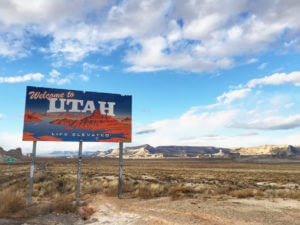
Utah downwinders and atomic veterans face unique health challenges due to historical radiation exposure from nuclear testing. Understanding these cancer risks helps residents access proper screening and support resources.
- Increased Cancer Rates – Radiation exposure significantly raises cancer development risks.
- Available Resources – Government programs provide compensation and medical care.
- Early Detection Benefits – Regular screening improves treatment outcomes and survival rates.
Utah downwinders experienced radiation exposure during the 1950s and 1960s when the federal government conducted above-ground nuclear weapons testing in Nevada. The radioactive fallout from these tests drifted across Utah, exposing residents to dangerous levels of radiation. This exposure has led to increased cancer rates among affected populations.
Let us explore these risks and available resources that can help affected individuals get the care and compensation they deserve.
How Does Radiation Exposure Cause Cancer
Radiation damages the DNA inside cells, which can lead to uncontrolled cell growth and the development of cancer. When high-energy radiation passes through the body, it creates charged particles that interact with cellular components.
These interactions can break chemical bonds in DNA molecules. While cells have repair mechanisms, some damage remains unrepaired or gets repaired incorrectly. Over time, accumulated DNA damage may cause normal cells to become cancerous.
The cancer risk depends on several factors. Higher radiation doses generally increase cancer risk, but even low doses can be harmful. Age at exposure also matters, with children showing greater vulnerability than adults.
What Types of Cancer Are Linked to Radiation Exposure
Radiation exposure increases the risk of developing several types of cancer. The most common downwinders cancer types include thyroid cancer, leukemia, and breast cancer.
Thyroid Cancer
Thyroid cancer occurs most frequently among those exposed to radioactive iodine. Children who consumed contaminated milk during the testing period face especially high risks.
The thyroid gland absorbs iodine readily, making it particularly vulnerable to radiation damage.
Leukemia
Leukemia represents another significant concern for atomic veterans and downwinders. This blood cancer can develop within just a few years of radiation exposure. Multiple studies have documented elevated leukemia rates in exposed populations.
Breast Cancer
Breast cancer affects women who experienced radiation exposure, particularly those who were young at the time of exposure. The developing breast tissue in children and teenagers shows greater sensitivity to radiation damage.
Other cancers linked to radiation exposure include lung cancer, colon cancer, stomach cancer, and brain tumors. The risk varies based on exposure levels, age at exposure, and individual genetic factors.
What Government Programs Help Utah Downwinders
The federal government established several programs to assist those affected by nuclear testing. The Radiation Exposure Compensation Act (RECA) provides financial compensation to eligible Utah downwinders, atomic veterans, and uranium workers.
Under RECA, qualified Utah downwinders can receive $50,000 in compensation. To qualify, individuals must have lived in specific counties during certain time periods and developed covered cancers. The program covers leukemia, multiple myeloma, lymphomas, and cancers of the thyroid, breast, esophagus, stomach, pharynx, small intestine, pancreas, bile ducts, gall bladder, salivary glands, urinary bladder, brain, colon, ovary, liver, and lung.
The Department of Veterans Affairs provides benefits to atomic veterans who participated in nuclear testing or occupied areas with radiation contamination. These veterans may qualify for disability compensation and specialized medical care.
Medicare and Medicaid also provide coverage for cancer screening and treatment. Many Utah downwinders affected by radiation exposure qualify for these programs based on age, income, or disability status.
Where Can Utah Downwinders Find Support and Resources
Several organizations provide information, support, and advocacy for Utah downwinders and their families. These resources help navigate complex compensation programs and access appropriate medical care.
Local support groups connect affected individuals with others who share similar experiences. These groups provide emotional support and practical information about dealing with radiation-related health issues.
Legal assistance helps families understand their rights under RECA and other compensation programs. Many attorneys, such as those at The Cancer Benefits Center for Downwinders®, specialize in radiation exposure cases and can guide families through the application process.
Medical specialists with expertise in radiation-related cancers provide the best treatment options. The Huntsman Cancer Institute at the University of Utah offers specialized care for downwinders and maintains research programs focused on radiation-induced cancers.
What Should Utah Families Know About Genetic Risk
Some radiation-induced genetic changes can pass from parents to children. While most radiation effects do not transfer to offspring, families should understand potential hereditary cancer risks.
Genetic counseling helps families assess inherited cancer risks. Counselors review family history, discuss genetic testing options, and provide guidance about cancer prevention strategies.
Children of Utah downwinders may benefit from earlier or more frequent cancer screening. Healthcare providers can develop personalized screening recommendations based on family history and potential genetic factors.
Get Compensation for Downwinders in Arizona, Nevada, and Utah
Accessing comprehensive cancer screening and treatment remains crucial for Utah downwinders and atomic veterans. Early detection through regular screening significantly improves treatment outcomes and survival rates. Government compensation programs provide financial support, while specialized medical centers offer expert care tailored to radiation-related health issues.
If you or a family member lived in Utah during the nuclear testing period and developed cancer, resources are available to help.
At Downwinders®, we can determine your eligibility, help with the application process, and provide support services designed specifically for Utah downwinders affected by radiation exposure.
To learn more about how we can help Utah downwinders get compensation, contact us today at 1 (855) 631-7197. We look forward to serving you!
 Downwinders® Claims
Downwinders® Claims